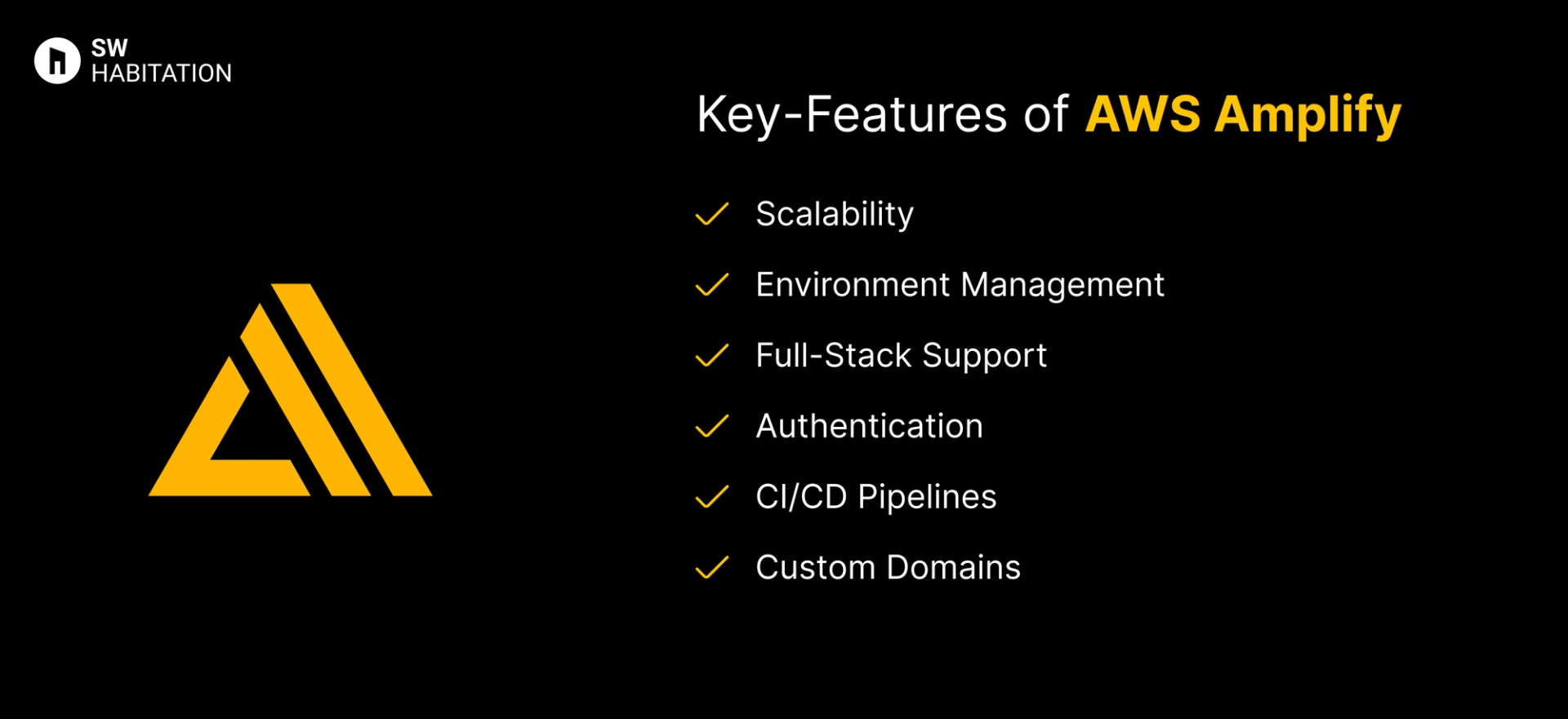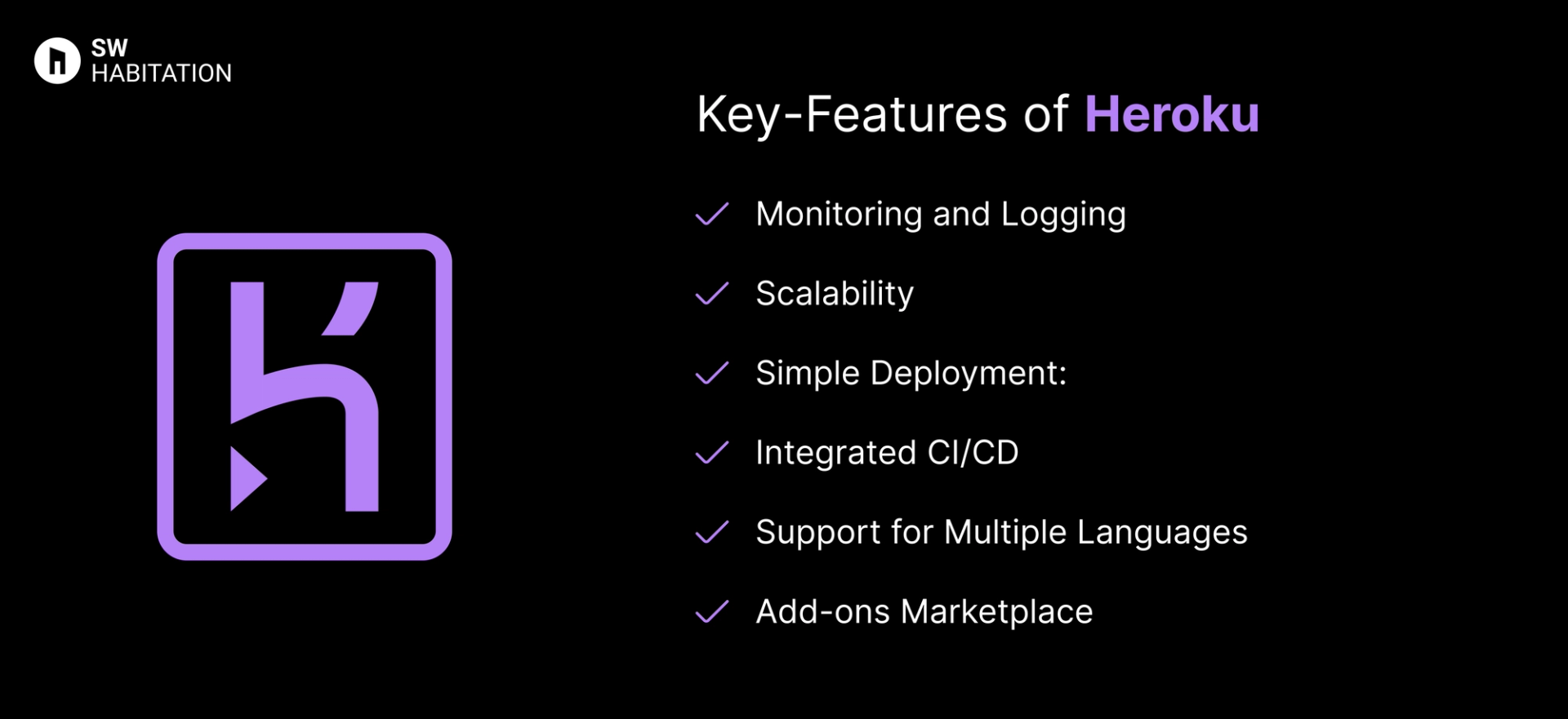AWS Amplify vs. Heroku

AWS Amplify

Heroku
You know when you’ve finished building your website and just want to get it online without dealing with all the techy stuff? That’s where deployment platforms help. They make it super easy to put your site live, just connect your code, click a button, and it’s up and running. No need to worry about servers or complicated setups.
They also take care of the important things like speed, security, and updates in the background. So while they handle the heavy stuff, you can focus on making your website look good and work great. It's simple, right?
What is AWS Amplify?
AWS Amplify is a deployment platform by Amazon Web Services that simplifies building and hosting full-stack applications. It provides tools to connect frontends to backends, manage app hosting, and scale effortlessly. Whether you’re working with static sites, dynamic apps, or serverless functions, Amplify has your back.
Key Features of AWS Amplify


- Scalability: Automatically scales with traffic, no manual intervention needed.
- Environment Management: Create separate environments for dev, staging, and production.
- Full-Stack Support: Deploy frontend and backend from a single platform.
- Authentication: Easy integration with Amazon Cognito for user management.
- CI/CD Pipelines: Automatic builds and deployments with every code push.
- Custom Domains: Connect your own domain with SSL certificates included.
Advantages of AWS Amplify
- Custom Domains and SSL: Free SSL and easy domain setup.
- Great for Serverless Apps: Perfect for serverless architectures.
- All-in-One Solution: Handles frontend, backend, and deployment seamlessly.
- CI/CD Out of the Box: Push code, and Amplify automatically builds and deploys.
- Integrated with AWS: Leverage the full power of AWS services like Lambda, S3, and DynamoDB.
Disadvantages of AWS Amplify
- Vendor Lock-In: Deep integration with AWS means it’s harder to migrate to other platforms later.
- Learning Curve: Familiarity with AWS services is helpful but can be overwhelming for beginners.
- Cost Complexity: Pricing can get confusing as your app scales and uses more AWS services.
What is Heroku ?
Heroku is a cloud platform that allows developers to build, run, and operate applications entirely in the cloud. It abstracts away infrastructure complexities, providing a platform-as-a-service (PaaS) solution for deploying apps with just a few commands. From simple web apps to complex backend services, Heroku handles the heavy lifting.
Key Features of Heroku


- Monitoring and Logging: Built-in tools for app health and performance monitoring.
- Scalability: Scale apps effortlessly with dynos (Heroku’s unit of computing power).
- Simple Deployment: Deploy directly from GitHub, Git, or CLI.
- Integrated CI/CD: Continuous integration and delivery pipelines.
- Support for Multiple Languages: Node.js, Python, Ruby, Java, Go, and more.
- Add-ons Marketplace: Extend functionality with databases, monitoring, and more.
Advantages of Heroku
- Free Tier: Great for small projects and learning.
- Easy to Use: Push your code and let Heroku handle the rest.
- Add-ons Marketplace: Access to a rich ecosystem of tools and services.
- Multi-Language Support: Deploy apps in multiple programming languages.
- Scalability: Easily scale up as your app grows.
Disadvantages of Heroku
- Performance: Not ideal for performance-heavy apps at scale.
- Cost Can Add Up: Scaling beyond the free tier gets expensive.
- Limited Customization: Less control over the infrastructure.
- Cold Starts: Apps on the free tier may sleep after inactivity, causing delays.
Comparison Between AWS Amplify vs Heroku
Use Cases of AWS Amplify
- Enterprise Apps: Ideal for large-scale applications needing robust infrastructure.
- Rapid Prototyping: Quickly spin up apps with authentication, storage, and APIs.
- Full-Stack Applications: Manage both frontend and backend in one place.
- Serverless Applications: Leverage AWS Lambda and API Gateway.
Use Cases of Heroku
- Hackathons and Learning: Great for rapid development and experimentation.
- Polyglot Projects: Supports multiple programming languages in one platform.
- Startups and Small Businesses: Deploy fast without worrying about infrastructure.
- Prototyping and MVPs: Quickly test ideas with minimal setup.
Conclusion
Deployment platforms are a total game changer if you’re looking to launch your website quickly, reliably, and without any trouble. Whether it’s a personal portfolio, a startup site, or a growing business platform, they handle the technical heavy lifting like hosting, security, and scalability so you can stay focused on building great experiences for your users.
You’re not boxed into a single approach. Most platforms integrate smoothly with the tools and frameworks you already love, letting you deploy directly from your Git repository, preview updates, and roll back with ease. With lightning-fast performance and dependable uptime, deployment platforms simplify the path from code to production. Pick the one that aligns with your workflow, and you’re all set to launch with confidence 🚀
Frequently asked questions
Is AWS Amplify free?
It has a free tier, which is great for testing and small apps. Paid usage kicks in based on bandwidth, storage, and build time.
Is AWS Amplify good for static sites?
Amplify is great for static sites and JAMstack apps, and it includes global CDN hosting, caching, and atomic deployments.
Does AWS Amplify support CI/CD?
Yes, Amplify has built-in CI/CD, just connect your Git repo (GitHub, GitLab, Bitbucket), and it auto-deploys on every push.
What can I build with AWS Amplify?
You can build and deploy full-stack apps with frontends (React, Vue, Angular, etc.) and backends (APIs, databases, authentication) using AWS services.
Is Heroku free?
Heroku used to offer a free tier, but as of late 2022, it now requires a paid plan for most production use. However, it still offers low-cost hobby plans for testing and personal projects.
What are Dynos in Heroku?
Dynos are lightweight containers that run your application processes. Heroku apps run inside dynos. You can scale up by increasing the number of dynos.
Can I use a custom domain on Heroku?
Yes. You can add custom domains via the Heroku Dashboard or CLI and configure DNS settings to point to your app.
